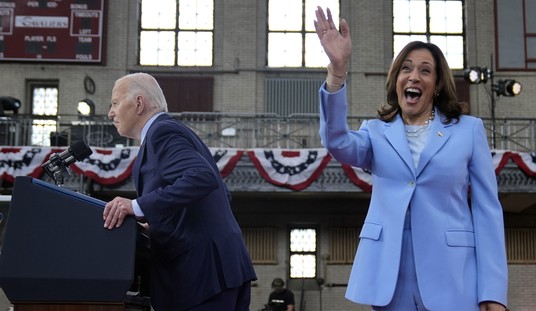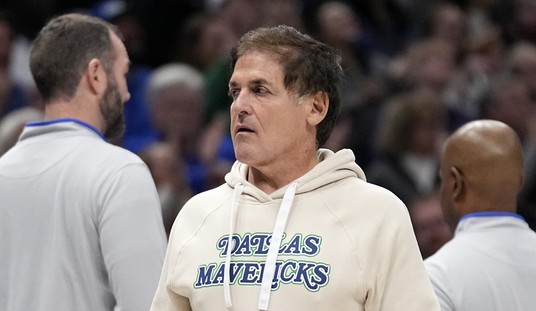“What Killed American Lit,” Joseph Epstein asks in the Wall Street Journal. “As a former English major—’Indeed! What regiment?’ asks a character in a Lionel Trilling story—I cannot help wondering what it must be like to be taught by the vast majority of the people who have contributed to ‘The Cambridge History of the American Novel,'” he adds:
“The Cambridge History of the American Novel” could only have come into the world after the death of the once-crucial distinction between high and low culture, a distinction that, until 40 or so years ago, dominated the criticism of literature and all the other arts. Under the rule of this distinction, critics felt it their job to close the gates on inferior artistic products. The distinction started to break down once the works of contemporary authors began to be taught in universities.
The study of popular culture—courses in movies, science fiction, detective fiction, works at first thought less worthy of study in themselves than for what they said about the life of their times—made the next incursion against the exclusivity of high culture. Multiculturalism, which assigned an equivalence of value to the works of all cultures, irrespective of the quality of those works, finished off the distinction between high and low culture, a distinction whose linchpin was seriousness.
In today’s university, no one is any longer in a position to say which books are or aren’t fit to teach; no one any longer has the authority to decide what is the best in American writing. Too bad, for even now there is no consensus about who are the best American novelists of the past century. (My own candidates are Cather and Theodore Dreiser.) Nor will you read a word, in the pages of “The Cambridge History of the American Novel,” about how short-lived are likely to be the sex-obsessed works of the much-vaunted novelists Norman Mailer, John Updike and Philip Roth or about the deleterious effect that creative-writing programs have had on the writing of fiction.
With the gates once carefully guarded by the centurions of high culture now flung open, the barbarians flooded in, and it is they who are running the joint today. The most lauded novelists in “The Cambridge History of the American Novel” tend to be those, in the words of another of its contributors, who are “staging a critique of ‘America’ and its imperial project.” Thus such secondary writers as Allen Ginsberg, Kurt Vonnegut and E.L. Doctorow are in these pages vaunted well beyond their literary worth.
A stranger, freshly arrived from another planet, if offered as his introduction to the United States only this book, would come away with a picture of a country founded on violence and expropriation, stoked through its history by every kind of prejudice and class domination, and populated chiefly by one or another kind of victim, with time out only for the mental sloth and apathy brought on by life lived in the suburbs and the characterless glut of American late capitalism. The automatic leftism behind this picture is also part of the reigning ethos of the current-day English Department.
Not to mention the History Department, as even AP managed to spot back in June:
Just 13 percent of high school seniors who took the 2010 National Assessment of Educational Progress, called the Nation’s Report Card, showed a solid grasp of the subject. Results released Tuesday showed the two other grades didn’t perform much better, with just 22 percent of fourth-grade students and 18 percent of eighth-graders demonstrating proficiency.
The test quizzed students on topics including colonization, the American Revolution and the Civil War, and the contemporary United States. For example, one question asked fourth-graders to name an important result of the U.S. building canals in the 1800s. Only 44 percent knew that it was increased trade among states.
“The history scores released today show that student performance is still too low,” Education Secretary Arne Duncan said in a statement. “These results tell us that, as a country, we are failing to provide children with a high-quality, well-rounded education.”
Education experts say a heavy focus on reading and math under the federal No Child Left Behind law in the last decade has led to lagging performance in other subjects such as history and science.
“We need to make sure other subjects like history, science and the arts are not forgotten in our pursuit of the basic skills,” said Diane Ravitch, a research professor at New York University and former U.S. assistant education secretary.
Of the seven subjects on the national test, students performed the worst in U.S. history. Officials with the National Assessment Governing board, which oversees the tests, say the results aren’t comparable to the other tests because different students take each exam in different years.
In her new post at the PJ Lifestyle blog (stop by early and often!), Dr. Helen, links to Andrew Ferguson’s recent book, Crazy U: One Dad’s Crash Course in Getting His Kid Into College. Asking, “Does the College Essay Suck the Life Out of Boys,” Helen notes that the PC indoctrination actually begins before the student is officially enrolled in college:
In the book, Ferguson’s son finally spits out a couple of paragraphs about his experience at a camp where there was a swimming test and he managed to swim the required distance while the rest were defeated. In the essay, the son wrote that he was “tired but proud; he sympathized with his classmates who hadn’t finished and in his victory, accepted modestly, he learned the timeless value of persistence and determination, expressed with grim earnestness…”
But his father knew the truth: “which was the masculine truth. He didn’t remember the race because it proved the timeless value of persistence. He remembered the victory because it was a victory: he had competed against this classmates, friends and rivals alike, and beaten them soundly and undeniably, and earned the right to a sack dance in the end zone. He knew he couldn’t say this, though, and I knew he was right.”
And that pretty much sums it up for the rest of college. Trying to please a bunch of people who care more about a PC stance than critically thinking with passion. It’s no wonder that boys and men are bypassing college.
To paraphrase Allan Bloom, academia ensures that the American mind remains not just closed, but hermetically sealed.









Join the conversation as a VIP Member